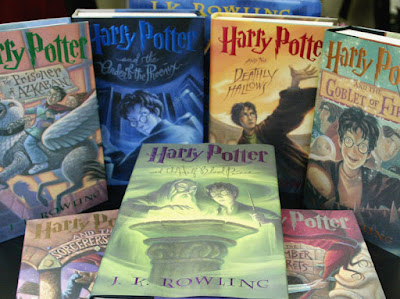The Novel of Spiritual Education
There’s a complex moral compass in most young adult stories, more specifically in the “Harry Potter” series. In these stories, the characters make rash and bad decisions. No character is all evil or all good. Even in the prequel that I read for this week, James Potter and Sirius Black are running from the police. Often time in these stories, the characters are young or teens. This is why the moral compass is complex. When you’re young, you often make mistakes or decisions that shape who we are, but not what we are. Potter and Black use magic to escape from the police. If I recall correctly, it’s illegal to use magic in front of Muggles and that is exactly what the kids do.
Power in these stories can easily be used for either good or bad. It is a character’s actions that determine whether or not you are good or bad. It doesn’t matter how good or bad you are, power will change you. In class, we talked about how in the end of “Harry Potter,” Harry breaks the wand, which shows how he is stopping the cycle having to do with a power imbalance. There’s also a struggle of power between the houses at Hogwarts.
Throughout Harry Potter, these spiritual challenges are faced. Things would be easier if Harry would just give up or go to Voldemort’s side. I believe there are moments where Harry could easily just chose to be tempted by the dark.
Reading “Harry Potter” was interesting since I’ve seen the movies, but never read the books. I found Harry as a character to be a little weak and whiny. For me the most interesting characters were the villains. This in itself poses a moral issue. Why did Rowling write such strong villains and antagonists and create such weak protagonists?
As a writer, I found it difficult to look past Rowling’s bad writing, which took me out of the story. It’s an ongoing joke among the creative writing students that Rowling teaches herself to write as she goes along, which is why the books become longer, darker, and better.




Comments
Post a Comment